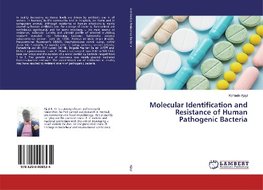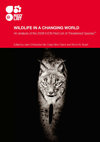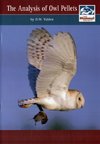
-
 Anglický jazyk
Anglický jazyk
Molecular Identification and Resistance of Human Pathogenic Bacteria
Autor: Kehinde Ajayi
In reality, increasing resistance levels are driven by antibiotic use in all sectors: in humans, in the community and in hospitals, on farms and in companion animals. Although resistance in human infections is mainly caused by human antibiotic use, for a... Viac o knihe
Na objednávku, dodanie 2-4 týždne
66.60 €
bežná cena: 74.00 €
O knihe
In reality, increasing resistance levels are driven by antibiotic use in all sectors: in humans, in the community and in hospitals, on farms and in companion animals. Although resistance in human infections is mainly caused by human antibiotic use, for a range of bacteria, farm-animal use contributes significantly and for some infections is the main source of resistance, molecular identity and plasmid profile of selected multidrug resistant revealed the following bacteria; Salmonella enterica subsp.enterica serovar Typhi str. CT18, Proteus mirabilis strain HI4320, Pseudomonas fluorescens SBW25, Staphylococcus cohnii subsp. cohnii strain 532 Contig16, Salmonella enterica subsp. enterica serovar Infantis, Escherichia coli str. K12 substr. DH10B, Shigella flexneri 2a str. 2457T and Klebsiella pneumoniae strain J1. Plasmid size ranged from 8.60 to 128.0 kilo base pair (kbp) and the number of plasmid carried by bacteria ranged from 1 to 3. The genetic base of resistance was mostly plasmid mediated fluoroquinolone resitance. The conventional use of antibiotics in poultry may have resulted to resistant strains of pathogenic bacteria.
- Vydavateľstvo: LAP LAMBERT Academic Publishing
- Rok vydania: 2020
- Formát: Paperback
- Rozmer: 220 x 150 mm
- Jazyk: Anglický jazyk
- ISBN: 9786200008534












